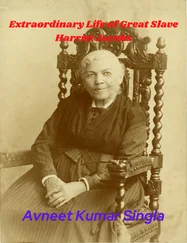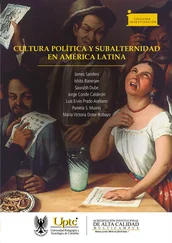Fucking foreigner, his eyes said to her.
“I should go,” she said. Nanette gave her another drunken hug and Melanie joined the security line forming in the alley behind the church, where most of the brass section and even the woodwinds, whose instruments were in danger of cracking from the cold air, were required to prostrate their cases on the frigid cobblestones. They took apart and reassembled trumpets and flutes, played stray notes here and there for the benefit of the humorless secret service agents and mustachioed policemen. They ran her violin through a portable X-ray machine, then, cleared, she stepped through what passed for a stage door leading to a foyer behind the altar. Another sentry eyed her badge and without warning patted her forehead, cheeks, and nose with makeup powder intended, she supposed, to make her less shiny for the cameras. A card table along one wall had cups of mineral water and cold black coffee. Teenaged altar boys carried the musicians’ coats and pocketbooks and instrument cases somewhere into the pit of the rectory and issued claim tickets that, instead of numbers, featured biblical verses. Melanie got one that said, “Nay, in all these things we are more than conquerors through him that loved us.”
They used a cramped hallway as a kind of green room, from which she poked her head out into the church to get a feel for the space — far larger than it appeared from the outside — and to see about channeling the blessèd spirit of Beethoven. She strolled the perimeter of the room, climbed the conductor’s riser. She felt disoriented, overwhelmed, anxious to get started.
There was no stage, no curtain. The altar had been carted off and their music stands and the rigid folding chairs sat splayed across the sanctuary, along with a dozen superfluous chairs that would go unused. The score to Harkályi’s Symphony No. 4 included instructions for the orchestra to place extra, empty chairs amid the musicians on stage in order to “honor those souls freed from the earthly bonds of Auschwitz,” and now organizers did the same thing at every concert of his music, whatever the composition. The stage crew today had placed empty chairs on the stage even though The Golden Lotus had absolutely nothing to do with the Holocaust. Quite a gimmick, but audiences loved it. Even with that extra spacing, the musicians would be playing right on top of each other. She pitied the bassoons, soon to be seated in front of the long-armed trombonists, until realizing that she might not have access to her bowing arm’s full range of motion. When the production moved to the opera house, it was conceivable that the musicians would have to contend with empty chairs in the pit, even though no one else could see them, as if it wasn’t claustrophobic enough down there.
The lights set up in the street outside amplified the colors of the stained glass, which shone directly onto the thirty or so rows of pews in which dozens of musicians sat adjusting reeds, head joints, and pegs while the party continued out on Batthyány Square. The clarinetists made quacking noises that rose up to a balcony, where the photographers and cameramen battled for position.
A few of her fellow orchestra members had recording contracts with Hungaroton and many others released their own homemade CDs of standard-repertoire chamber music. Some were very good players technically, one or two better than Melanie, but for the most part they lacked feel . The orchestra consisted of the least musical musicians with which she ever had the displeasure of performing. A band of castoffs, has-beens, and never-willbe’s. The other, big orchestra in Budapest recorded for a London-based label and biannually toured the United States or Asia. When someone like a Schiff or a Solti returned to Hungary, he worked with that ensemble over at the Liszt Academy. For guest musicians, the Opera Orchestra got second-rate pop stars and novelty acts. They performed on heavy metal ballads by Edda and other aging Hungarian rockers. Perhaps it was their status as second fiddle that caused the general malaise she sensed even while they prepared for what was arguably the biggest concert in the orchestra’s history. Or maybe growing up in a culture with such a rich musical legacy led to the blasé, unimpressed attitude about Beethoven’s presence in the very same building. Either way, no one else appeared to revel in the musical spirit clinging to every pillar and pew. “Ludwig Beethoven stood right here!” she wanted to shout. “Don’t you people get it?”
The stage manager, a portly beast of a man in rimless glasses, ordered the musicians to take their seats and remove their ID badges for the duration of the performance. Secret service agents moved silently into position among the stations of the cross and someone pulled open the main doors to invite in the cold air and several hundred dignitaries and hangers-on. The floor stopped rumbling, the heater turned off so the microphones wouldn’t pick up the vibration. The rows of pews, divided by a center aisle, filled up fast. The stained glass threw prismatic colors at the faces and starched shirts of the quickly assembling congregation. Tickets for the event ran in the 100,000-forint range and didn’t include seat assignments, so tuxedoed gentlemen elbowed each other to get up front. Murmurs rippled through the crowd and orchestra as various celebrities and prominent members of parliament made themselves visible among the three reserved and cordoned-off rows closest to the musicians. Red, white, and green banners hung from the ceiling and swayed amid the commotion.
Melanie placed her violin and bow on her lap and shook the blood down into her fingers. Warm, stony reverb filled every corner, each one lit up for reasons of national security and national television. She couldn’t see Nanette. She wished she had thought to use the W.C.
The audience took its place. The lights flickered and then dimmed as the prime minister and his bat-faced wife entered from a door Melanie had not noticed before. Slowly, uncertainly, people stood and applauded. Those in the orchestra tapped their feet or bumped their bows gently against their music stands. Melanie shared a stand with a fifty-year-old housewife named Zsuzsi who smelled like burned toast and hadn’t shaved her legs since glasnost. Not a good look with white stockings. Zsuzsi swooned like a schoolgirl at the sight of the prime minister, and even Melanie had to admit that he was more handsome in person than on TV. The happy couple turned their backs to the orchestra and gave the room a cheesy photo-op wave. They genuflected and crossed themselves before sitting.
Once the clamor receded and people sat again, a young tuxedoed man stood from the audience and hollered a string of obscenities and declarations that Melanie couldn’t completely understand. He shouted something unintelligible about “There is no freedom in Hungary” and “Where is our grand democracy?” The crowd was aghast. One man took a swing at him. The entire orchestra, all eighty-plus musicians, did what they could to conceal their laughter as the security guards dragged the protestor out and no doubt beat him to a gooey pulp right there on the red carpet. The P.M. stood and faced the crowd again with a shrug of his shoulders and that self-deprecating smile he surely had practiced intently in front of a mirror. Cameras flashed on the balcony like Chernobyl-sized lightning bugs.
Then Lajos Harkályi, the guest of honor, entered with a buxom date not all that much older than Melanie. She prayed it was his daughter. A feverish, temporary insanity overtook the crowd. They stomped their feet and hooted. They clapped in unison the way Hungarian audiences did when extremely excited or extremely drunk. Or both, as was likely the case today. Somewhere, recording engineers fumbled to adjust input levels. Harkályi was tall, far taller than Melanie had imagined. He wore a natty new-fashioned tuxedo jacket, no tie. His nest of silver wooly hair was cut uncharacteristically close and neat for the occasion, compared to the style Melanie had seen in photos of him; his date sparkled with stage lights and sequins and the holy pseudo-virginal radiance of the stained glass. The prime minister hugged Harkályi. The composer and his girlfriend slid into the front-row pew, which had a block of empty seats reserved for the archbishop and president, who didn’t show: more empty chairs.
Читать дальше












